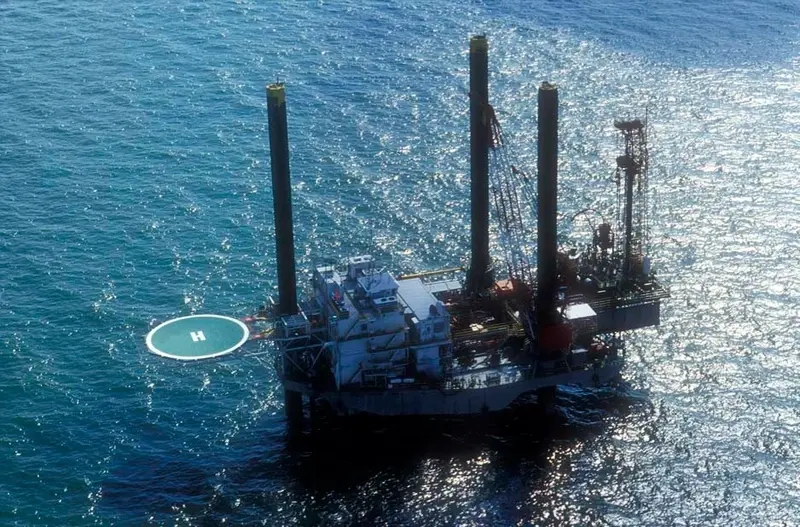
The FTSE 100 outperformed European peers at midday on Monday, as escalating conflict between Hamas and Israel pushed oil prices higher, helping lift the index’s heavyweight oil majors.
The FTSE 100 index was up 18.82 points, or 0.3%, at 7,513.40. Meanwhile, the FTSE 250 was down 116.00 points, or 0.7%, at 17,616.32, and the AIM All-Share was down 4.99 points, or 0.7%, at 689.72.
The Cboe UK 100 was up 0.2% at 750.32, the Cboe UK 250 was down 0.9% at 15,305.64, and the Cboe Small Companies was up 0.1% at 13,040.88.
BP and Shell remained the top blue-chip performers at midday on Monday, up 2.9% and 2.7%, respectively.
The stocks were benefitting from a surge in oil prices amid flaring tensions in the Middle East as investors assessed the potential for the conflict to disrupt supply.
Brent oil was quoted at $87.75 a barrel at midday in London on Monday, up from $84.22 at the London equities close on Friday.
Prime Minister Benjamin Netanyahu warned Israel on Sunday to prepare for a ‘long and difficult’ conflict a day after Palestinian militant group Hamas launched a surprise assault from Gaza.
More than 700 Israelis have been killed since Hamas launched its large-scale attack, according to the Israel Defense Forces on Monday.
Gaza officials reported at least 413 deaths in the impoverished and blockaded enclave of 2.3 million people, which was hammered by Israeli air strikes on 800 targets ahead of what many feared may be a looming ground invasion.
Defence Minister Yoav Gallant said Israel would impose a ‘complete siege’ on the long blockaded enclave, spelling out the impact on its 2.3 million people: ‘No electricity, no food, no water, no gas – it’s all closed.’
In the FTSE 250, Energean tumbled 17% amid the escalation of tensions in the Middle East.
The hydrocarbon exploration and production company is developing a substantial gas field in offshore Israel and is consequently at the heart of the current uncertainty.
Back in September, Energean reported production for the first half of 2023 was 105,900 barrels of oil equivalent per day. The company said the surge in production was primarily due to production commencing at the Karish offshore gas field in Israel, which contributed 70,100 barrels of oil equivalent per day.
Elsewhere in London, Metro Bank jumped 19% after it announced a new deal with investors to shore up its finances. This helped avert ‘another crisis’ in the banking sector in the eyes of AJ Bell’s Russ Mould.
The deal includes a £325 million capital raise and £600 million in debt refinancing. Spaldy Investments, Metro Bank’s largest shareholder, is contributing £102 million and will become the controlling shareholder of Metro Bank upon completion of the transaction – with roughly a 53% shareholding.
It comes after Metro Bank’s shares tumbled last week on reports it was in talks with investors to raise around £250 million in equity funding and £350 million in debt.
Mould, investment director at AJ Bell, said Metro Bank’s fundraising agreement is important on two counts.
‘First, it avoids any panic and a run on the bank, something that could have feasibly happened if it had not raised a significant amount of cash over the weekend to shore up its balance sheet. Second, it provides breathing space for the company to conclude talks on asset sales,’ he said.
He added that moving forward, there will ‘undoubtedly’ be customers who may prefer to shift their money to a different bank. Consequently, he said Metro Bank will need to find a way to keep its clientele happy and still win new business, which Mould argued is going to be a ‘tough job’.
‘It is time for a radical rethink of how the company operates. A high-cost base is unsustainable, so something has to change. If not, Metro Bank might find itself gobbled up by a bigger company whose first job will be to shut down its expensive branch network,’ he said.
On AIM, Mind Gym plunged 35% as it warned its financial results are set to disappoint following weak trading amid macroeconomic headwinds.
The London-based personal and business coaching service said it expects revenue to fall to around £21 million in the six months ended September 30, from £26.8 million a year before.
It also expects to achieve a loss at earnings before interest, tax, depreciation and amortisation level, compared to positive Ebitda of £1.9 million the year before.
Additionally, Mind Gym warns its annual revenue and profit will be ‘significantly’ lower than current market expectations.
Mind Gym explained that it saw a ‘challenging’ macroeconomic environment over the period. A larger number of its clients took a cautious approach, which has delayed time frames and procurements of new projects.
Additionally, the company said some clients have undertaken restructuring efforts, which has consequently delayed training and spending commitments.
In European equities on Monday, the CAC 40 in Paris was down 0.3%, while the DAX 40 in Frankfurt was down 0.5%.
Stocks in New York were called lower. The Dow Jones Industrial Average was called down 0.4%, the S&P 500 index down 0.5%, and the Nasdaq Composite down 0.7%.
The pound was quoted at $1.2173 at midday on Monday in London, down from $1.2226 at the London equities close on Friday. The euro stood at $1.0526, lower against $1.0576. Against the yen, the dollar was trading at JP¥149.10, lower compared to JP¥149.18.
Gold was quoted at $1,850.11 an ounce midday on Monday, sharply higher against $1,831.35 at the London equities close on Friday.
Copyright 2023 Alliance News Ltd. All Rights Reserved.




